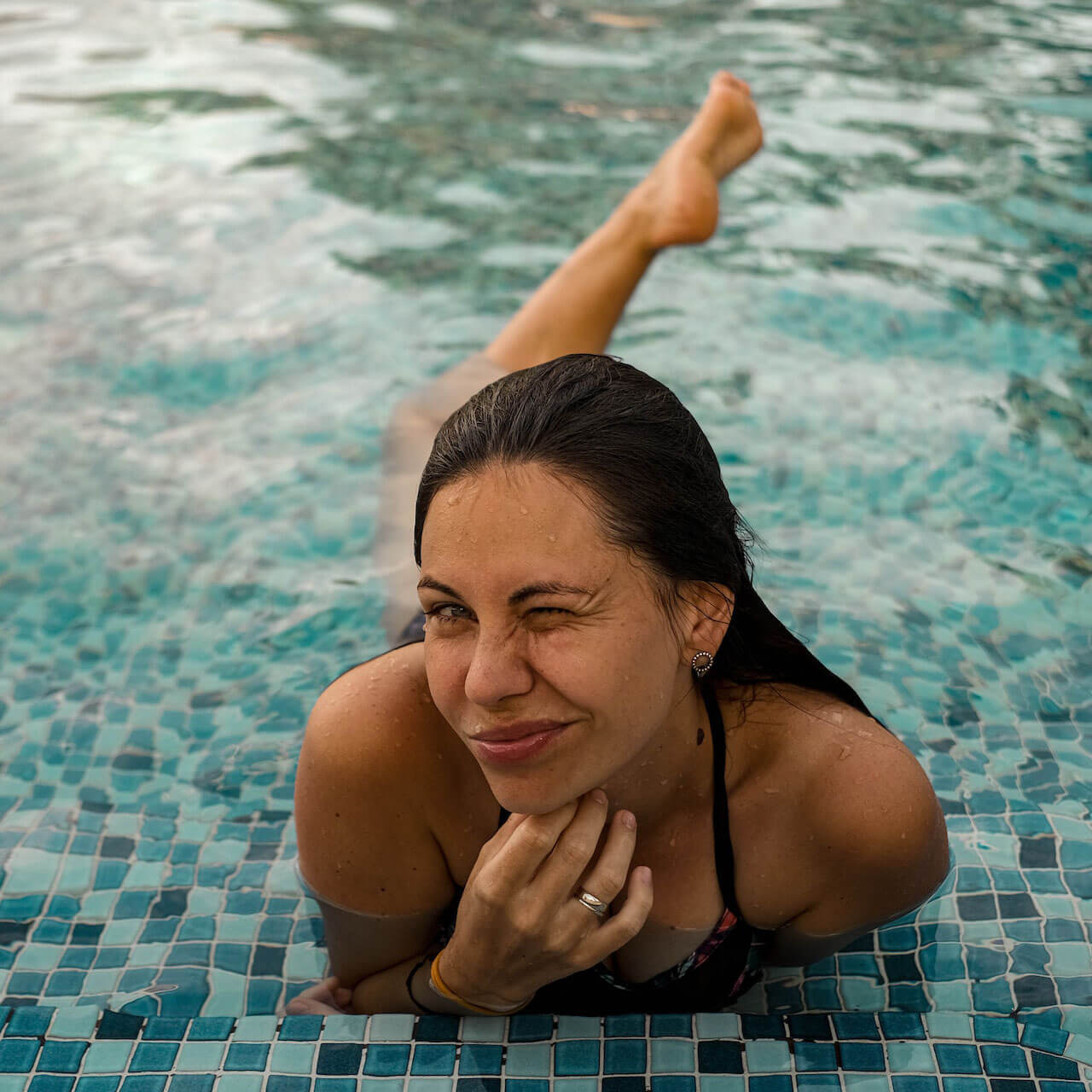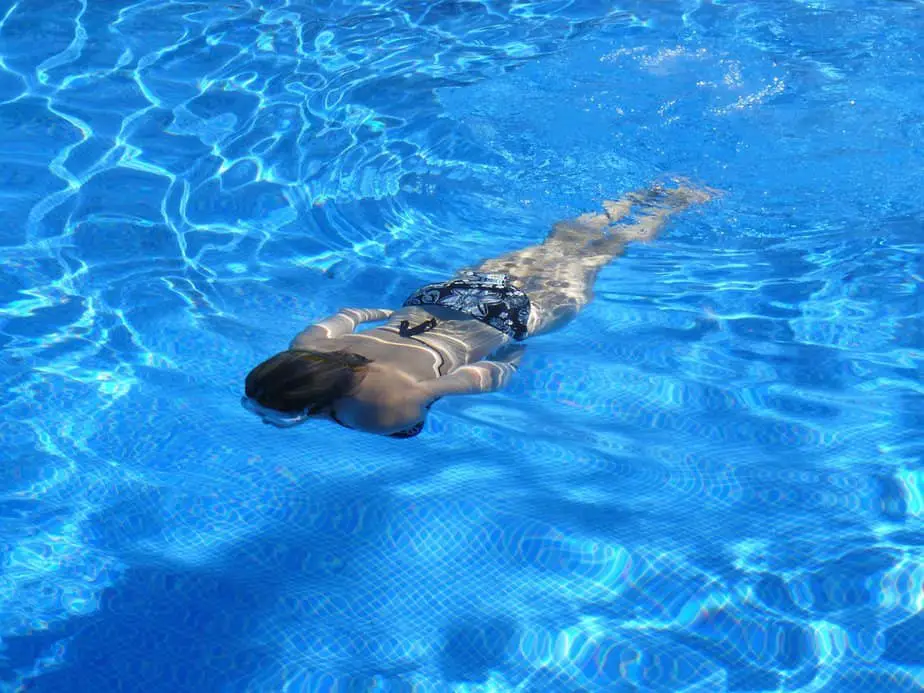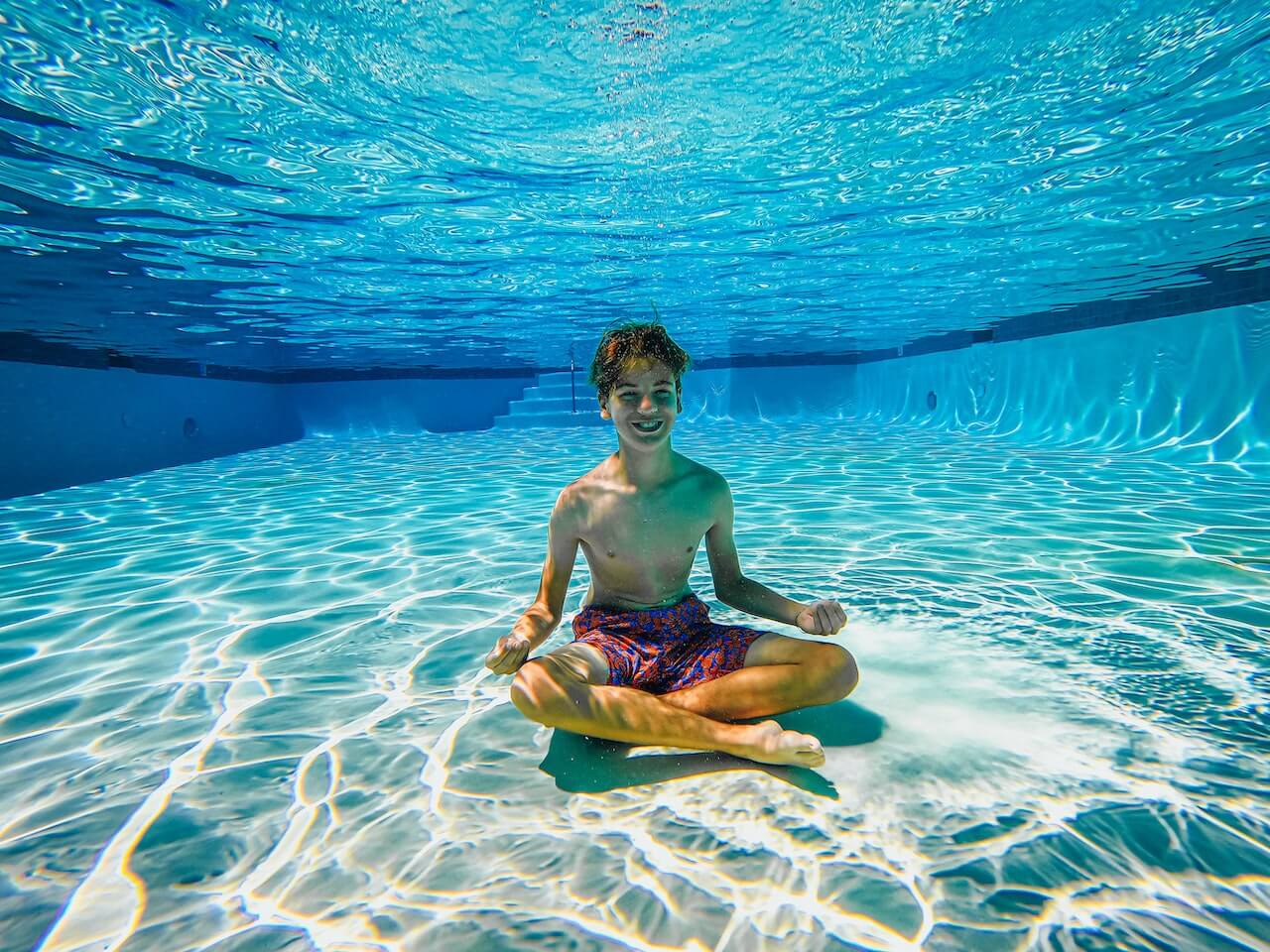Have you ever noticed that you tend to have the urge to pee more often when swimming? It’s not just you – this phenomenon affects everyone and has a scientific explanation.

Swimming makes you want to pee because of something called immersion diuresis. When you’re submerged in water, your blood vessels constrict which increases blood pressure, and your body reduces some of the pressure by releasing urine. Additionally, factors such as cold water temperature, diet, medication, and the physical pressure on your bladder during swimming can contribute to this urge.
In this article, we will explore the reasons behind this curious effect that swimming has on your body.
The Physiology of Urination
Normal Urination Cycle
During the normal urination cycle, your kidneys work to filter waste and excess water from your bloodstream. This process creates urine, which then travels through your ureters and into your bladder.
When your bladder is full, you experience the urge to go to the bathroom as it signals the muscles in the bladder to contract, pushing the urine out through the urethra.
The Role of ADH: Your Body’s Water Regulator
Antidiuretic hormone (ADH) plays a significant role in regulating the balance of water in your body. This hormone is released from the pituitary gland, located at the base of your brain.
When your body is dehydrated, the brain signals to release more ADH, which prompts the kidneys to retain more water and reduces urine production.
On the flip side, when your body has an ample amount of water, the brain releases fewer ADH, leading to increased urine production, which helps maintain your body’s water balance.
Now, when you submerge yourself in water, a unique phenomenon called immersion diuresis occurs, influencing urination. This occurs because:
- Blood vessels around the kidneys and bladder constrict, triggered by the cold water. This constriction results in an increased urge to urinate.
- Involuntary contractions of the muscles beneath your ribcage, due to the kicking and pulling during swimming, apply extra pressure to the bladder walls.
Together, these factors affect your body’s normal urination cycle and increase your need to pee while swimming.
Why the Strong Urge to Pee When Swimming?

Immersion Diuresis
Expanding on the previous point, immersion diuresis is a physiological response that happens when you’re submerged in water, especially cold water. Let’s break it down a bit to make it easier to understand:
- Immersion: This simply means that your body, or a significant part of it, is submerged in water.
- Diuresis: This is a fancy term that means the production of urine by the body.
So, immersion diuresis means your body tends to produce more urine when you’re in water.
Why does this happen? Well, it’s all about how our bodies try to keep a balance, or what scientists call ‘homeostasis’.
When you’re in water, the pressure of the water pushes against your body, and more specifically, against your blood vessels. This pressure makes your body feel like there’s an increase in the total amount of blood in your body.
In response, it limits the release of a hormone called antidiuretic hormone (ADH). As the name suggests, this hormone usually stops you from creating too much urine.
So, when the ADH level drops, your kidneys start producing more urine to get rid of what the body thinks is ‘extra’ fluid.
Furthermore, if the water you’re swimming in is cold, another effect kicks in. The cold temperature makes your blood vessels in your skin and limbs contract, pushing even more blood to your core.
This amplifies the feeling of having ‘too much’ blood, and your body works even harder to get rid of the extra fluid by making more urine.
The Aquatic Ape Hypothesis: An Evolutionary Perspective
Another explanation for the urge to pee while swimming is related to the Aquatic Ape Hypothesis. This theory suggests that our ancestors lived in watery environments and evolved specific adaptations to help them survive.
One such adaptation could be increased urination while in water as a means of regulating body temperature and maintaining proper blood pressure.
Although this hypothesis is still debated, it offers an interesting perspective on the connection between swimming and the need to use the bathroom.
Role of Diet and Medications
Certain dietary choices and medications can also influence the need to pee while swimming. For example, drinking diuretics like coffee, tea, caffeinated drinks and alcohol can increase urine production, making you feel a sudden urge to pee.
Similarly, salty foods can lead to dehydration, causing you to drink more water and subsequently increasing the need to urinate.
In addition, some medications, such as diuretics prescribed for diabetes or high blood pressure, can also contribute to increased urination.
Be mindful of your diet and any medications you’re taking if you plan to spend time in a swimming pool or participate in open water swimming.
Counteracting the Effect: Is It Even Possible?

Hydration: To Drink or Not to Drink?
As a swimmer, you might wonder about your hydration and whether your liquid intake directly affects your urge to pee while swimming.
Studies show that immersion in cold water causes blood vessels around the bladder and kidneys to constrict, which can lead to an urge to urinate.
While water temperature does play a role, managing your fluid intake before and after swimming might help. Having an electrolyte drink could help balance the liquid levels in your body and reduce the need for frequent bathroom trips.
Remember that hydration is crucial for your overall health and performance, so don’t skimp on fluids just to avoid a restroom break.
Body Adaptation: Can Your Body Adjust?
As you continue to improve your fitness protocol, you might be curious if your body can adapt to this urge to pee while swimming.
Even though swimming might make you pee due to the involuntary contractions of muscles beneath your ribcage, it doesn’t mean you should hesitate to hit the pool. Over time, your body could adapt to this sensation, easing the need to urinate as frequently.
Listen to your body and make adjustments in your water exercises as needed. If you have a pre-existing health condition or concern that could affect your urinary system, consult a medical professional before proceeding with an altered swim routine.
Use the Washroom Before Entering the Pool
To decrease your chances of getting interrupted by the urge to pee during a swim, you should first use the bathroom and already be drinking plenty of fluids in the hours leading up to your swimming session.
That way, you don’t end up chugging a bunch of water right before your swim; that is a surefire way to get a full bladder within a few minutes and it is also uncomfortable having the water slosh around in your stomach.
Peeing in the Pool: Everyone’s Dirty Secret

The Prevalence: Just How Common Is It?
You might be surprised to know that peeing in the pool is more common than you think. In fact, it’s practically a hallmark of swimmer culture. From dirty secrets to running jokes, it’s likely that most swimmers have peed in a pool at some point.
The Impact: How Pee Affects Pool Water
When you pee in the pool, it doesn’t just cause an “eww” factor. It has real consequences on pool water quality and your health.
First, let’s talk about chlorine. You probably associate that strong smell at the pool with chlorine, but that smell occurs when urine interacts with chlorine, producing a compound called chloramine, the real culprit that causes that smell.
This compound can make your eyes sting, your nose run, and even exacerbate asthma symptoms.
Here’s a breakdown of the main components found in urine and their effects on pool water:
- Urea: This waste product from protein metabolism forms irritating byproducts when mixed with chlorine.
- Bacteria: Although chlorine kills most bacteria, urine can still introduce unwanted germs to the water.
- Painful urination after swimming: The chemical reaction between pee and chlorine can lead to painful urination post-swim.
Taking a closer look at the impact of peeing in the pool, you might even have an increased risk of a urinary tract infection (UTI).
With unwelcome bacteria swirling around, it’s possible for these germs to find their way into your urinary tract, leading to an uncomfortable and painful UTI.
Long story short: do yourself (and everyone else) a favor and use the bathroom before diving in.
Plus, it’s worth remembering that there’s no actual dye that changes color when you pee in the pool, so don’t let that old myth keep you from enjoying a refreshing swim—just make sure to take a bathroom break when nature calls.
Frequently Asked Questions
What does chlorine do to urine?
When urine, which contains substances like urea and ammonia, interacts with chlorine in the pool, it forms byproducts known as chloramines. These chloramines are responsible for the strong smell often associated with swimming pools. They can cause eye irritation, coughing, and even trigger asthma. They also reduce the effectiveness of chlorine, which means the pool can become less sanitary.
What percentage of adults pee in pools?
Surveys suggest that about 1 in 5 adults admit to peeing in the pool. However, the actual number might be higher as not everyone would openly admit to doing so. It’s a common but unsanitary practice that can lead to health issues and a decrease in the quality of pool water. Even the greatest Olympian of all time, Michael Phelps, admits to peeing in the pool.
Why do I lose control of my bladder after swimming?
The feeling of losing bladder control after swimming could be due to temporary changes in your body from being in the water. The pressure of the water can stimulate the need to urinate, and the cooler temperature can cause blood vessels to constrict, pushing more blood to your core and leading to increased urine production. However, if this is a persistent issue, it might be worth discussing with a healthcare professional to rule out underlying conditions.
Sources:
- https://www.mentalfloss.com/posts/why-swimming-makes-you-pee
- https://www.usms.org/fitness-and-training/articles-and-videos/articles/why-swimming-might-make-you-need-to-pee
- https://www.swimmingworldmagazine.com/news/the-truth-behind-clean-or-not-so-clean-pools/
- https://www.prevention.com/health/a36942413/peeing-in-pool-safety/
- https://waterandhealth.org/healthy-pools/experts-clear-the-water-on-the-colorful-myths-associated-with-peeing-in-the-pool/

